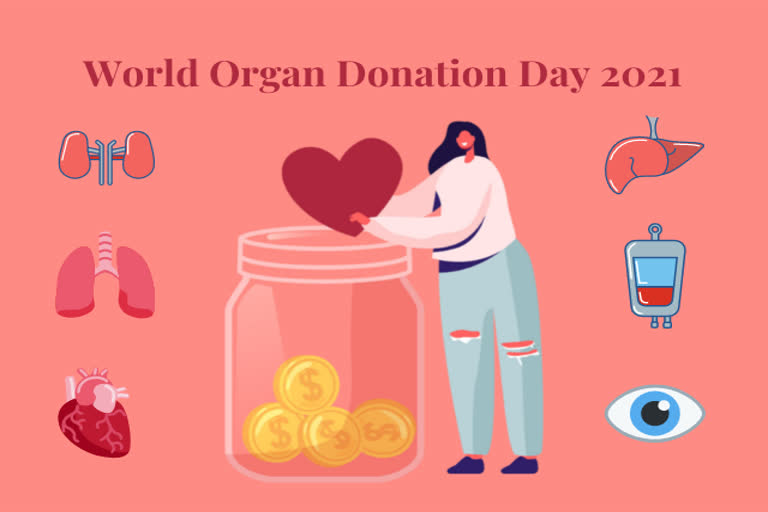To make people understand the importance of organ donation and encourage them to do the same, every year on 13th August, World Organ Donation Day is observed. Besides, there is a stigma associated with organ donation, which still needs to be clarified to many people across the globe.
According to a survey In India, every year about 500,000 people die because of the non-availability of organs, 200,000 people die due to liver disease, and 50,000 people die because of heart disease. Moreover, 150,000 people await a kidney transplant but only 5,000 get among them. For organs such as the heart and lungs, these figures are even more worrying. The organ donation rate in India is very low, just 0.01 percent, which is a very small figure compared to countries like Croatia (36.5 percent) and Spain (35.3%). Therefore, more and more people need to be encouraged to donate organs, so that lakhs of people can be blessed with a new life.
What Is Organ Donation?
Organ donation is a process in which a person living or dead donates his or her healthy organs for giving life to a person in need. Through organ transplantation, the organ is removed from the donor's body and transplanted into the recipient's body. Usually, transplantation of most body organs is possible only for a limited period after the death of the donor. At the same time, some organs or parts of organs can also be donated by living people as well.
What Organs Can Be Donated?
- Liver.
- Kidney.
- Pancreas.
- Heart.
- Lung.
- Intestine.
- Corneas.
- Middle ear.
- Skin.
- Bone.
- Bone marrow.
- Heart valves.
- Connective tissue.
- Vascularized composite allografts (transplant of several structures that may include skin, uterus, bone, muscles, blood vessels, nerves and connective tissue).
Rules and regulations governing organ transplantation in India
The primary law relating to organ donation and transplantation in India, the "Human Organ Transplantation Act", was passed in 1994. Its purpose was to determine the rules and policies for organ transplantation for medical purposes. At the same time, it was also to ensure that this process could not be misused for human organ trafficking or other illegal purposes. After this, in the 2011 Act, amendments were made and the rules related to this act were notified in 2014.
In 2019, the Government of India implemented the National Organ Transplant Program with a budget of ₹149.5 crores (US$) to promote deceased organ donation. The rules prescribed for organ donation under this Act are as follows
- A person of any age, caste, religion, or community can get themselves registered for organ donation.
- Tissues such as the cornea, heart valves, skin and bone can be donated in case of natural death, but vital organs such as the heart, liver, kidney, intestine, lung and pancreas can be donated only in case of 'brain death'.
- Anyone under the age of 18 requires the consent of a parent or guardian to register to become a donor.
- You may not be allowed to donate in case you are suffering from a serious condition such as actively spreading cancer, HIV, diabetes, kidney disease, or heart disease.
Types Of Organ Donation
- Live Related Donation
This is when a living person donates an organ or part of an organ for transplant to another person. The living donor can be a family member, such as a parent, child, brother or sister, grandparent or grandchild. - Live Non-related Donation
Living donation can also be done by a person who is emotionally related to the victim, such as a friend, relative, neighbor or in-laws. - Deceased Organ Donation
In this case, the patient has to register himself/herself in a hospital that conducts transplants. The patient will then be waitlisted. Then, whenever the organ from a deceased (brain dead) person is available, the patient in need of the organ is intimated
Also Read: How COVID-19 Affects Your Heart



